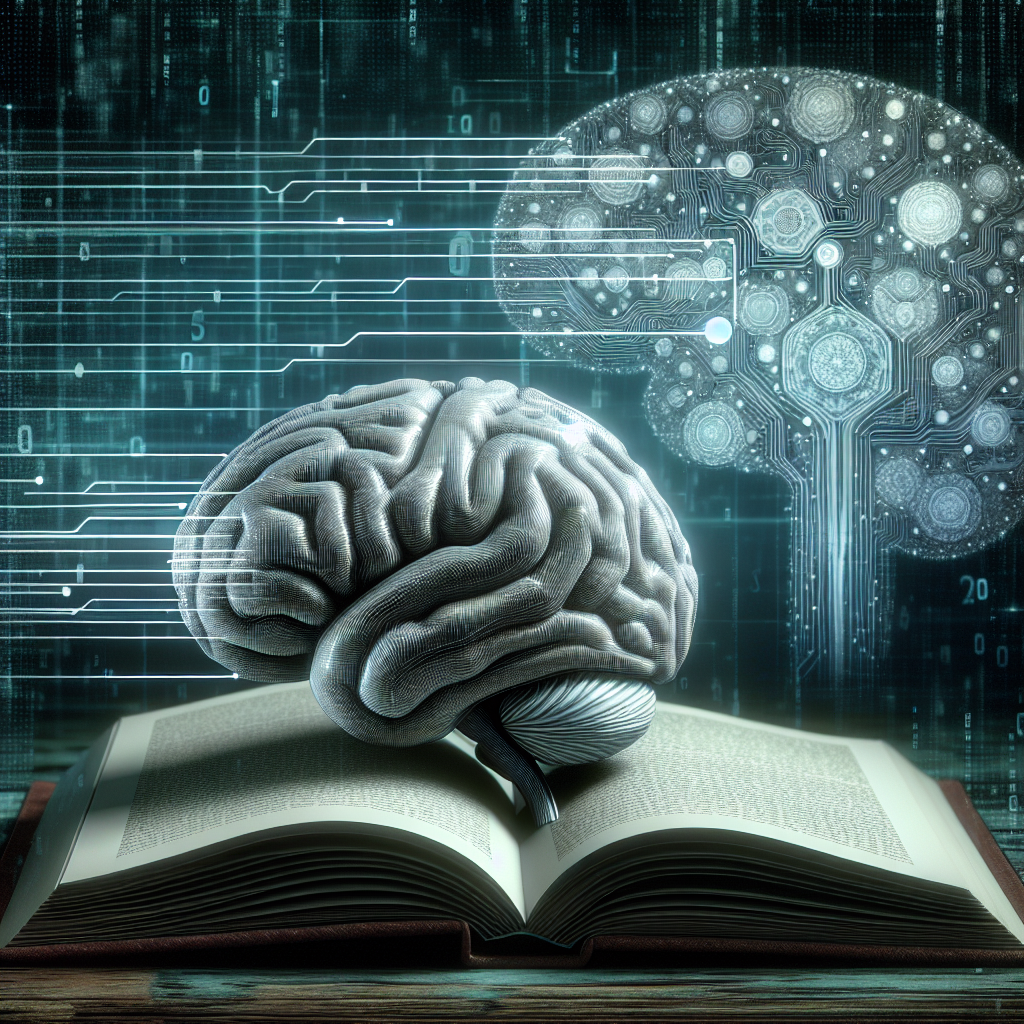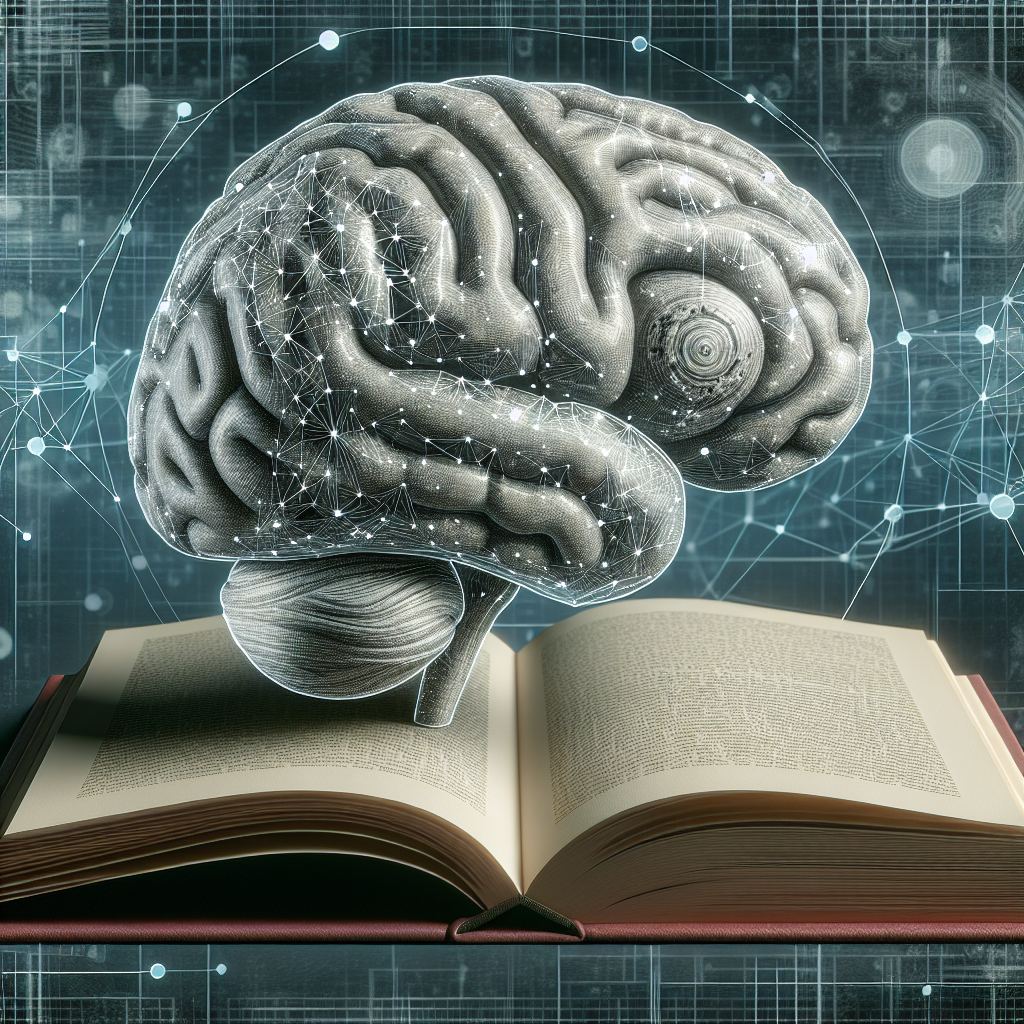What Are Memory Techniques And Why Are They Useful?
Glittering like treasure-trove within the labyrinth of your mind, memory techniques hold the power to transform the way you remember, learn, and comprehend. “What Are Memory Techniques And Why Are They Useful?” explores this realm within your brain, offering an engrossing study about unusual yet effective memory strategies. This exploration guide promises a journey through the clouds of forgetfulness, towards the dazzling constellations of recollection and comprehension. Prepare yourself to unlock the secret alleyways of your psyche, finding keys not just to remember, but to truly master information in ways you never imagined.

Defining Memory Techniques
When you start to ponder upon the widespread vastness of the human mind, you immediately stumble upon the intriguing concept of memory. It can truly be considered a personal hard drive, carrying information, concepts, ideas, and experiences. Now, let’s dive a little deeper and explore the concept of memory techniques, a subset of memory and an insightful tool to harness the potential of our brains.
Exploring the concept of Memory Techniques
Memory techniques aren’t any esoteric science; rather, they are practical, everyday tools that assist you in retaining and recalling information more efficiently. They are structured processes that involve various brain functions, including perception, mental imagery, associative thinking, and attention. They provide a structure for your mind to encode, store, and retrieve data effectively.
Differentiating Memory Techniques from Normal Memory Recall
While normal memory recall is passive and unstructured, memory techniques offer a more structured, logical approach to remember data. Most people, when attempting to remember something, merely scratch the surface of their memory reservoirs. In contrast, with the application of memory techniques, you can systematically delve deeper into various memory layers, retrieving even the most elusive pieces of information.
The Role of Memory Techniques in Cognitive Function
Memory techniques don’t just work as information storage and retrieval systems; they also play a vital role in cognitive function. They boost your attention span, stimulate mental agility, enhance imaginative thinking, and improve overall problem-solving capabilities. In essence, building and using memory techniques is akin to working out at a brain gym – it strengthens your mental muscles and maintains cognitive health.
Types of Memory Techniques
Just as an artist uses multiple brushes to create a masterpiece, there are several memory techniques. Each one has its unique application and usability, offering a diverse palette for our cognitive creations.
Understanding the Chunking Technique
Let’s start with the ‘Chunking Technique’. It’s a process where you break down complex chunks of information into smaller, manageable bits. This technique taps into our natural ability to grasp and remember shorter bits of data while simultaneously increasing the capacity of short-term memory.
Explaining the Method of Loci
Next comes the captivating ‘Method of Loci’. It involves envisioning a familiar location or path and using it as a mental map on which to ‘place’ items to be remembered. Our brains are naturally inclined towards spatial and visual information, making this memory technique particularly effective.
Delving into the Acronym Technique
The ‘Acronym Technique‘ is a widely applied memory tool that involves creating an acronym from the first letters of the items to be remembered. This technique simplifies complex information arrays into a singular word or phrase for easy recall.
Discussing the Imagery Technique
The ‘Imagery Technique’ calls upon the power of imaginative thinking. Here, you create vivid, dynamic, and multi-sensory images associated with the information you wish to remember. The more distinctive the image, the increases its chances of being recalled.
Highlighting the use of Rhyming and Music
Rhyming and Music are incredibly powerful memory aids. We all remember the nursery rhymes from our childhood, don’t we? The reason? Rhymes and music create a rhythmic, auditory pattern that our brains find easy to encode and recall.
Scientific Understanding of Memory Techniques
On a scientific level, memory techniques hold great significance. They improve cognitive function, boost brain activity, and improve overall memory.
Brain and Memory: A Neurological Perspective
From a neurological perspective, neurons or brain cells are the building blocks of memory. When we use memory techniques, we stimulate various neural pathways, reinforcing synaptic connections and encouraging the growth of new neurons, enhancing our memory potential.
How Memory Techniques Enhance Brain Activity
Memory techniques invigorate brain activity by engaging various areas of the brain simultaneously. Whether it’s the hippocampus for long-term memory encoding, the frontal lobe for short-term memory handling, or the parietal lobe for spatial and visual processing, memory techniques actively involve all these areas.
Scientific Studies Supporting the Efficacy of Memory Techniques
Numerous scientific studies validate the efficacy of memory techniques. They improve memory recall, enhance cognitive agility, and can significantly reduce the risk of brain-related ailments like Alzheimer’s and dementia.

The Connection Between Age and Memory Techniques
Memory techniques are not age-specific. They can benefit everyone, from a preschooler to a nonagenarian.
Improving Elderly Memory with Techniques
Memory techniques can boost the memory power of the elderly, enabling them to maintain cognitive health, improve recall, and enjoy a rich and fulfilling life.
Role of Memory Techniques in Early Childhood Learning
Childhood is an excellent time to introduce memory techniques. These techniques can dramatically improve their learning efficiency, problem-solving skills, and creative thinking.
Memory Techniques and Brain Plasticity over Different Ages
From a scientific perspective, memory techniques tap into ‘brain plasticity’. Regardless of age, the human brain retains its ability to reorganize and build new neural pathways. memory techniques stimulate this ability, enhancing memory capacity across various age groups.
Use of Memory Techniques in Academics
In the realm of academics, memory techniques prove to be invaluable tools.
Benefits of Memory Techniques for Students
Improving recall, enhancing understanding, supplementing creativity, and reducing stress are just a few of the many benefits students can reap from memory techniques.
Practical Uses of Memory Techniques in Studying
Whether it’s chunking for mathematical formulas or loci for history chronology, memory techniques can inject efficiency and fun in the otherwise dry and monotonous task of studying.
Incorporation of Memory Techniques in Education System
There’s a growing trend for the incorporation of memory techniques in the education system. Schools and universities worldwide are beginning to acknowledge their usefulness, and ample resources are being dedicated to propagate their application.
Memory Techniques in Professional Fields
Professional fields also witness extensive use of memory techniques, enabling individuals to excel in their areas of work.
Significance of Memory Techniques in Medical Profession
In the medical profession, where a vast amount of information needs to be remembered and recalled accurately, memory techniques hold immense significance.
Memory Techniques in Law and Judicial Practice
In Law and judicial practice, where an extensive understanding and recall of law codes, previous case histories, and legal terminologies are required, memory techniques are invaluable.
Role of Memory Techniques in Business and Management
In business and management, techniques like chunking and acronyms aid in managing complex data, aiding in strategic planning, decision making, and problem-solving.
Using Memory Techniques in Day to Day Life
Surprisingly, memory techniques infiltrate our everyday life, often without us even acknowledging them.
Using Memory Techniques for Remembering Names
Struggling with names? Try associating a distinctive feature of the person you meet to their name. You’ll soon find yourself effortlessly remembering names!
Applying Memory Techniques for Grocery Shopping
Can’t recall the lengthy grocery list? Chunk it down or create a peculiar mental image for it. It might seem trivial, but it works!
Memory Techniques for Remembering Important Dates
From remembering birthdays to keeping track of bill payment dates, memory techniques can simplify complex calendars into easily recallable patterns.
Limitations and Misconceptions about Memory Techniques
Despite their numerous benefits, there are often misunderstandings about the capabilities and limitations of memory techniques.
Addressing Common Errors in Implementing Memory Techniques
Implementing memory techniques isn’t a one-size-fits-all solution. It requires practice, and often people tend to either overuse or misuse these techniques leading to sub-optimal results.
Discussing Limitations of Memory Techniques
It’s important to note that while these techniques aid memory recall, they’re not foolproof. Memory is influenced by a myriad of factors, such as stress, health, and age, and memory techniques should be employed as tools rather than magic solutions.
Debunking Myths and Misconceptions about Memory Techniques
A common myth is that people with higher IQs don’t need memory techniques. However, irrespective of your IQ, memory techniques can enhance your brain function. They don’t just enhance memory but also stimulate cognitive abilities and creative capacity.
Improving Efficiency of Memory Techniques
The efficiency of these memory techniques can be further boosted by integrating them with healthy lifestyle choices and regular brain engagement.
Role of Regular Practice in Memory Techniques
Like any other skill, the efficiency of memory techniques improves with regular practice. The more you engage with these techniques, the better you get at using them.
Importance of Healthy Lifestyle to Support Memory Techniques
A healthy lifestyle supports the function of memory techniques. Regular physical exercise, a balanced diet, adequate sleep, and hydration – all nourish your brain, which in turn enhances your memory.
Brain Exercises to Enhance Efficiency of Memory Techniques
Regular brain exercises, such as puzzles, quizzes, and reading, can help improve the efficacy of memory techniques. They stimulate various brain areas, enhancing overall brain health and memory capacity.
Future of Memory Techniques
While memory techniques have come a long way, the future holds even more promise with the intersection of technological advancements and neuroscience research.
Emerging Technologies and Their Role in Enhancing Memory
Emerging technologies such as brain imaging, machine learning, and artificial intelligence can help us understand the intricacies of memory formations and the effectiveness of memory techniques.
Advancements in Neuroscience and its Impact on Memory Techniques
Advancements in neuroscience, such as the discovery of brain plasticity and neural regeneration, offer fresh perspectives on the scope and possibilities of memory techniques.
Predicting Future Developments in Memory Techniques
Research is ongoing to develop newer, more refined memory techniques, further enhancing our memory’s potential. The future bodes well, and it won’t be wrong to say that the horizon of our memory abilities is yet to be fully discovered!
In Conclusion, memory techniques help us to use our memory capacity to the fullest. They make learning easier, storage more efficient, and retrieval accurate. Despite their limitations, the advantages far outweigh the disadvantages. Regular practice and a healthy lifestyle can further boost their efficiency. The future for memory techniques looks promising, fuelled by advancements in neuroscience and technology. Infusing memory techniques in our daily lives can undoubtedly make us smarter, more productive, and mentally agile.

